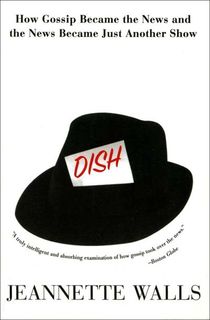For much of the past decade, Karina Longworth’s podcast You Must Remember This has brought Old Hollywood to life for contemporary listeners. Her ability to find contemporary relevance in behind-the-scenes movie mythology and draw parallels between earlier eras and today—as well as her sly narration and evocative production—have shown how prescient stories like the Manson murders and the anti-communist blacklist of the 1950s have become.
Nowhere has Longworth’s approach been more pertinent than in her most recent season, “Gossip Girls.” The story of early Hollywood gossip queens Louella Parsons and Hedda Hopper might seem like movie-industry inside baseball, but through their careers, Longworth traces the history and development of American news media.
She also sees parallels between the 2016 presidential election and Parsons’ polished approach and Hopper’s willingness to play dirty, and she takes a critical eye to the catty infighting their publishers and editors encouraged. Looking at the ramifications of their tumultuous tenure in the public eye, it’s not hard to see that many of the problems in the contemporary news media have always been present.
Whether you’re one of Longworth’s devoted listeners who doesn’t want this season to end, or if you just want to check her sources, we’ve rounded up five books for you—four of the nonfiction volumes she’s cited and a bonus novel that explores themes from this season.

The First Lady of Hollywood: A Biography of Louella Parsons
For almost half a century, Louella Parsons regaled readers with movie-industry news and gossip. Her chatty tone drew an audience in the millions, but while she came off as a gossipy neighbor on the page, her power in the industry could stop an actor’s career dead in its tracks. (Cineastes may know that she almost got Citizen Kane cancelled for its unflattering depiction of her boss, newspaper magnate William Randolph Hearst.)
In this comprehensive biography, Samantha Barbas follows Parsons’ career from her early days as a stringer for Illinois newspapers, through the glittering highs of her career in the 1940s, to her slow disappearance from the Los Angeles gossip scene.
Related: 10 Top-Notch Works of Journalism

Hedda Hopper's Hollywood: Celebrity Gossip and American Conservatism
While Louella Parsons was known for her friendly approach to Hollywood gossip, Hedda Hopper took a meaner angle on celebrity news. The lies she published in her columns drew ire from the movie stars she covered, and the way she frequently undermined Parsons—like when she broke the story about Citizen Kane’s true subject—played a role in her rival’s downfall.
Jennifer Frost views Hopper through the lens of American conservatism, showing how she used her column to forward the anti-interventionist/anti-World War II movement America First, depicting her willingness to name suspected Communists in the McCarthy hearings of the 1950s, and sharing some shocking excerpts of her interviews with Black actors like Sidney Poitier.

Dish
As a writer for New York magazine’s Intelligencer section and for MSNBC’s Scoop column, Glass Castle author Jeannette Wells had a front-row seat to the crossover between gossip and so-called hard news.
Dish, her first nonfiction book, takes a long view of the gossip industry and how it’s influenced the way we read about international news and contemporary politics. Her survey starts with the 1950s tabloid Confidential—one of Longworth’s sources throughout the run of You Must Remember This—and hits high and low points of 20th century media, from Mike Wallace’s interview show Night-Beat to The National Inquirer.
In the sections about the website Drudge Report and the way the news covered Bill Clinton’s impeachment, she also illustrates how gossip coverage influenced the way we cover global news with far-reaching implications.

Nobody's Girl Friday: The Women Who Ran Hollywood
One of the most surprising—and moving—episodes this season profiled Louella’s daughter Harriet Parsons, a pioneering female movie producer in 1950s Hollywood. While few female directors were making studio movies at the time, some women took jobs as producers, screenwriters, and editors.
Nobody’s Girl Friday chronicles the twenty years when, to quote Bette Davis, “women owned Hollywood.” The statistics author J.E. Smythe cites are impressive, but the stories she tells about figures like screenwriter/Writer’s Guild president Mary J. McCall Jr., editor Anne Bauchens, and producer/screenwriter Joan Harrison are inspiring. Smythe’s description of the HUAC anti-communist hearings that ended many of these women’s careers will make readers wonder what might have been if they had just been allowed to work.
Related: 15 Must-Read Feminist Books from the Past 100 Years

The Seven Husbands of Evelyn Hugo
Throughout her career, Taylor Jenkins Reid has explored the intersection of media persona and personal experiences in the lives of public figures. The Seven Husbands of Evelyn Hugo introduces us to up-and-coming journalist Monique Grant, who has been assigned to interview the reclusive 79-year-old screen icon of the title.
Jenkins Reid explores the theme of Hollywood’s secret conservative streak—a theme that has also threaded through this season of You Must Remember This—through the twin revelations of Hugo’s secret Cuban heritage and through her romance with costar Celia St. James.
Featured image from His Girl Friday / Columbia Pictures




